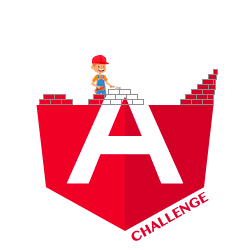🟠 Wrap Function Pipe
Information
This is the second of three @Pipe() challenges, the goal of this series is to master pipes in Angular.
Pipes are a very powerful way to transform data in your template. The difference between calling a function and a pipe is that pure pipes are memoized. So they won’t be recalculated every change detection cycle if their inputs haven’t changed.
Pipes are designed to be efficient and optimized for performance. They use change detection mechanisms to only recalculate the value if the input changes, to minimize unnecessary calculations and improving rendering performance.
By default a pipe is pure, you should be aware that setting pure to false is prone to be inefficient, because it increases the amount of rerenders.
There are some useful predefined pipes like the DatePipe, UpperCasePipe and CurrencyPipe. To learn more about pipes in Angular, check the API documentation [here]https://angular.dev/guide/pipes).
Statement
In this exercise, you are calling multiple functions inside your template. You can create a specific pipe for each of the functions but this will be too cumbersome.
The goal is to create a wrapFn pipe to wrap your callback function through a pipe. Your function MUST remain inside your component. WrapFn must be highly reusable.
Constraints:
- Must be strongly typed
